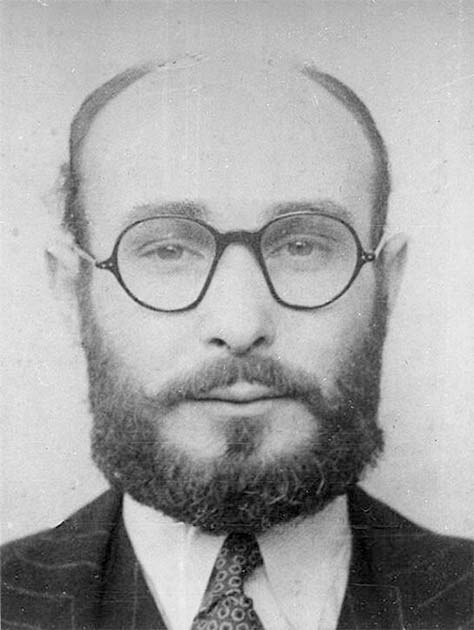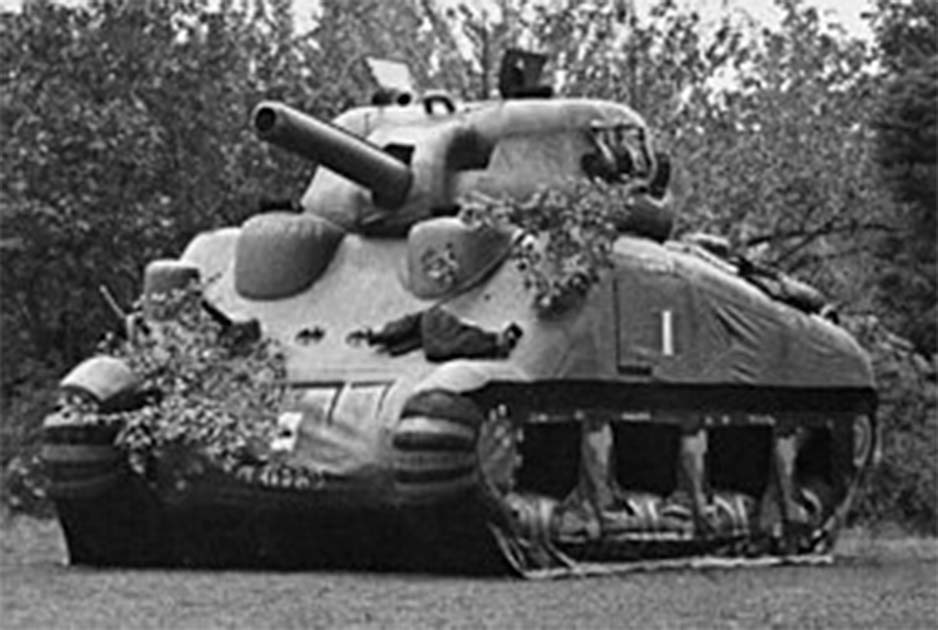Juan Pujol Garcia lived a lie so well that it helped to win World War II. Garcia was a double agent acting for Britain, and performed in his role so convincingly that they named him Garbo after the mysterious and enigmatic actress Greta Garbo.
Garcia was relocated to Great Britain during the war by the Nazis who believed that he was a secret agent loyal to them. His Nazi codename was Alaric and his spy network was known as the Arabal.
This spy network however did not exist! For years false information was fed through Garcia, culminating in his playing a key role in the success of Operation Fortitude which allowed the British to mislead the Germans about their invasion of Normandy in 1944.
This misinformation led to him being made a Member of the Order of the British Empire for his wartime service. Hilariously, he also got an Iron Cross from the Germans.
Early Years and the Spanish Civil War
Garcia was born in Barcelona to a Catalan named Joan Pujol. Joan was a cotton factory owner whilst his wife Mercedes Garcia Guijarro was an Andalusian from Motril.
Garcia was the third of four children and was sent to the boarding school of Valldemia just outside of Barcelona. As a student there, he was only allowed out of school on Sundays to see his father.
Garcia stayed there until the age of 13 when he was moved to a school in Barcelona run by his father’s friend Monsignor Josep. He stayed for three years before leaving after arguing with his teacher. Garcia then worked a variety of jobs in the lead-up to the Spanish Civil War.

In 1931, Garcia completed six months of his compulsory military service as a cavalry unit of the 7th Regiment of the Light Artillery. It became clear to him early on that he did not enjoy the military lifestyle. He hated horse riding and was recorded as lacking the essential qualities of generosity, honor, and loyalty.
But historic events were about to overtake him. In 1936, when the Spanish Civil War began, Garcia was a poultry farmer in the North of Barcelona. His family suffered heavily at the hands of the Republican forces with his mother and his sister being arrested as counter-revolutionaries.
Garcia was called up to join the Republican faction, but refused and was arrested. He was freed by a traditionalist group named Socorro Blanco which helped to produce fake papers and go back to being a poultry farmer.
In the coming years, like many people living in Spain, Garcia found himself being treated awfully by both the Fascist and Communist sides. Through this, he developed a great resentment for both parties and by extension Nazi Germany and the communist Soviet Union.
World War II
Following the end of the Spanish Civil War, Garcia managed to settle in Madrid, with his wife Araceli Gonzales, and have a child named Joan Fernando. However, it was not long until the Second World War began, and Garcia decided that this time he must act for the good of humanity. He aligned himself with Britain who he saw as Germany’s only real adversary.
In 1941, Garcia approached the British Embassy in Madrid but was rebuffed. He tried this again twice more, with the same outcome. Garcia even got his wife to act in his stead in the hope that a woman might experience a more open reception, but still, the British Embassy had no use for him as a spy.
Not to be so easily deterred, Garcia then approached the German embassy to offer his services. This might look like an absence of morals, but in truth he thought that this would make him more valuable to the British Government.
In order to appeal to the Nazi faction, Garcia created a new identity that was passionately pro-Nazi and that was a diplomat that could travel to Britain. He managed to contact a German agent and was accepted into German espionage.
Despite his instructions to travel directly to Britain, Garcia instead went to Lisbon. This was because of the diplomatic passport that he had managed to get forged which claimed he was a diplomat based in Lisbon.
However, this did not stop him from providing intel to the Germans. Garcia utilized tourist guides to Britain, Reference books, and magazines from the library. He claimed that he was traveling around Britain and even expensed his fares using the British railway guide.
- Virginia Hall, the Limping Lady: Master Spy With One Leg
- Traitors To The Crown: Who Were The Cambridge 5?
This proved trickier than he thought as he was unfamiliar with the British currency. He created an entire fictional spy unit based around his alleged contact in Glasgow that was so convincing that MI5 began a large spy hunt. It was from then, that the British Government saw him as an asset.
MI5
MI5 had been aware that someone had been giving counterintelligence to the Germans but did not know who it was. Garcia operated as a double agent under the double-cross system and became known as Garbo after Greta Garbo.

In this jurisdiction, Garbo, alongside his college Harris, wrote some 315 letters with an average of 2,000 words addressed to the German Secret Intelligence. The Germans were so overwhelmed by this response that they did not recruit any more spies to be deployed in the UK: they felt they had everything they needed.
To appear plausible, the letters supplied a mixture of actual intelligence mixed with complete fiction. The right information was also often artificially delayed to reduce its negative impact.
For example in 1942, on the eve of an Allied naval operation, Garbo sent an accurate report of ships leaving port heading for North Africa, but the letter was delayed intentionally to secure his position as a German spy but not allow the Germans to act on the information.
One of the biggest successes of Garbo was his reporting of Operation Fortitude, part of the Allied planning for D-Day. Garbo sent over 500 radio messages between January 1944 and June 1944. Sometimes there were more than 20 a day.
All of these reports suggested that the landing of the Allied forces would happen across the Strait of Dover, to minimize the distance at sea between England and France. This allowed for the landings to go off with a better chance of success. The Germans bought the misinformation, and the rest is history.
Ironically, the Germans paid Garcia $340,000 to maintain and provide for his network of agents across the UK. At its height, Garcia’s fictional network contained 27 agents. In a testament to his role in the war, the German nation granted him the Iron Cross whilst the British Government awarded him an MBE.
Top Image: Juan Pujol Garcia’s finest hour was misleading the Nazis about Allied intentions for D-Day. Source: Bruno / Adobe Stock.
By Kurt Readman